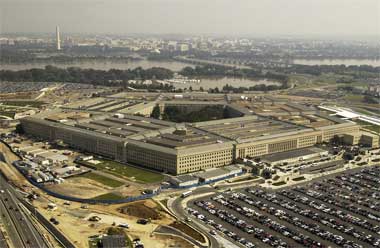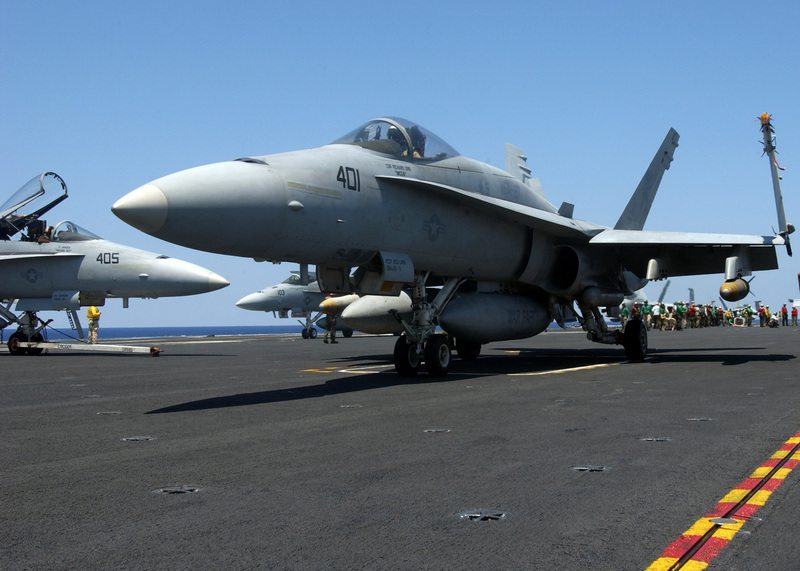The Department of Defense spends around $400 billion a year on goods and services. This includes everything from ships, tanks, planes and ballistic missiles to freight hauling, medical care and even the cut-rate toothpaste provided in government-subsidized commissaries. It also spends a lot of money and devotes a significant number of people to manage all its activities. These back office operations suck tens of billions of dollars a year out of the defense budget. Which might be tolerable if defense spending is increasing. But as we all know, it isn’t.
Declining defense budgets are forcing the Pentagon to cut force structure, delay or cancel modernization programs, reduce forward deployments and otherwise compromise national security. Announced plans to trim headquarters staffing and make defense procurement more efficient through better buying initiatives will, at best, save a few cents on the dollar. As a result, the U.S. military is on a path to becoming smaller, older and less competitive with potential opponents.
Responding to this crisis in national security, the Defense Business Board (DBB) has proposed a solution that is simple, even elegant, and doesn’t require employing untested processes, procedures or technologies. The DBB is an advisory group made up of senior former defense officials, corporate executives and business experts tasked by the Secretary of Defense to provide him with independent advice on how to improve the department’s practices. In its latest report, the DBB recommends that the Pentagon simply apply commercial best practices to the problem of cutting costs, reducing wasteful and unnecessary activities and improving performance.
The DBB report starts by telling the story of IBM’s recovery from the brink of financial ruin in 1993. Like the Pentagon, IBM was a massive organization that allowed years of increasing revenues and high profits to go to its head; it was now suffering from increased overhead, extreme redundancy and an inadequate focus on cost reduction. IBM had 266 different general ledger systems, 31 different internal communication networks and 155 different data centers. And 42 cents out of every dollar spent went to overhead, even worse than DoD today. At the same time, IBM was facing an unpredictable and highly competitive business environment that it lacked the resources, corporate organization or management practices to successfully address. In other words, IBM in 1993 looked remarkably like DoD today.
What did IBM do? It rapidly consolidated its accounting systems, data centers and communications networks. It got rid of layers of management and eliminated back office personnel. The company also streamlined acquisition practices and the ways it delivered services to customers. As a result, IBM reduced internal costs in just four years by nearly $10 billion (15 percent) and increased revenues by nearly twice that amount.
The overarching lesson that the DBB wants to communicate with this example is that by employing commercial best practices as done by many successful companies, the Pentagon can fight its way out of its current budgetary hole. The commercial world has pioneered the development of financial management practices, procedures and systems. By changing its antiquated financial management systems and organizations, the Pentagon could save, according to the DBB, as much as $6 billion a year. Employing proven commercial logistics and supply chain management techniques, the kind of approaches used by Amazon, Walmart, Ford, Boeing and IBM today, could reduce Pentagon expenses by up to $23 billion. Finally, if the Pentagon used commercial best practices when it comes to workforce management, skills development and compensation, it could reduce near-term expenditures by perhaps $10 billion a year with savings of nearly $300 billion over twenty years.
In other words, the entire burden of sequestration cuts to the defense budget could be wiped out through the adoption of well-known and commonly practiced business reforms. Moreover, these changes would not result in the loss of a single airplane, ship or tank. Nor would it effect military personnel in operational units. The civilian workforce would be pared down, the hordes of defense contractors reduced and uniform personnel removed from positions that could be performed by those not in the military. This approach would also require delayering, which means getting rid of the excess of general officers and senior executives that is clogging the upper levels of the defense bureaucracy.
If commercial companies can come back from the brink and reassert their dominance, as did IBM, why hasn’t the Pentagon been able to do the same? The answer the DBB provides is as simple and straightforward as their proposals for reform: a lack of leadership. Since no one in the Pentagon can imagine it going out of business – or the military equivalent, losing a major war – they lack the incentive to take the necessary actions to truly reform the way DoD does business. Instead, they tinker around the edges cutting a few people here and closing a field office there.











